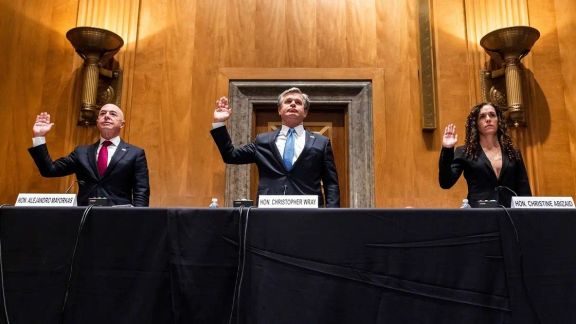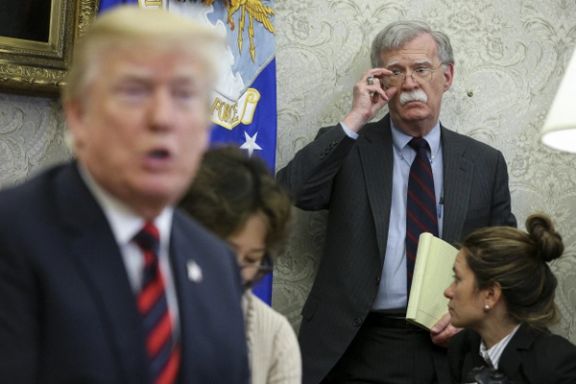US Lawmakers Seek Domestic Threat Info Amid Secret Tehran Talks

As information about secret talks with Tehran remain scarce, US lawmakers demand to know how American officials are being protected against Iran’s threats.

As information about secret talks with Tehran remain scarce, US lawmakers demand to know how American officials are being protected against Iran’s threats.
Reps. Mark Green (R., Tenn.), the House Homeland Security chair, and August Pfluger (R., Texas) have written to Homeland Security Secretary Alejandro Mayorkas, FBI Director Christopher Wray and Director of National Counterterrorism Center Christine Abizaid, “to request additional information about the persistent threats posed by Iran’s campaign to direct operations against U.S. persons or other targets in the U.S. homeland.”
Since the targeted killing of Qasem Soleimani, Iran’s top military and intelligence operator in the Middle East, in January 2020, the Iranian regime has repeatedly threatened revenge of former Trump administration officials.
The Justice Department revealed on August 10, 2022, that an operative of Iran’s Revolutionary Guard tried to hire a hitman in the US to kill former National Security Adviser John Bolton.
Bolton told Iran International Television at the time that he was not surprised an indictment was unsealed because he was kept informed “in general terms until late in 2021 when it was determined I would again get secret service protection.”

Congressmen Green and Pfluger citing Bolton’s case also mentioned threats against former Secretary of State Mike Pompeo and others. “Further, credible threats by Iran have continued to persist against Pompeo as well as his former top aide, Brian Hook, who served as special representative for Iran during the prior administration.”
The letter cited Iran’s militant proxy the Hezbollah, which is designated as a Foreign Terrorist Organization by the United States, and its global reach. It cited testimony by FBI Director Wray who told Congress that the Lebanese Shiite group has sent operatives “to build terrorist infrastructure worldwide. The arrests of individuals in the United States allegedly linked to Hizballah’s main overseas terrorist arm, and their intelligence collection and procurement efforts, demonstrate Hizballah’s interest in long-term contingency planning activities here in the Homeland.”
The lawmakers expressed concern that the Biden administration continues to engage with Iran for a nuclear deal, while these activities continue.
“To assist the Committee’s examination of the threats posed by Iran in the U.S. homeland, we request that DHS, the FBI, and NCTC provide Committee staff a classified briefing no later than September 14, 2023 about these ongoing threats, to include but not limited to, information about the number of active plots by Iran or its proxies against U.S. persons living in the United States, as well as information about your respective agencies’ coordination efforts for threat intelligence to counter Iran’s activities,” the letter said.
In August the administration agreed to allow $6 billion of frozen Iranian funds in South Korea to be unblocked, after allowing $2.7 billion to be released from Iraq in June. Although the reason for these steps is presented as a hostage release deal, numerous reports have indicated the possible existence of more secret arrangements.
Iran has reportedly reduced the pace of its uranium enrichment, while the Biden administration look the other way as Tehran boosts its oil exports to China in violation of US sanctions. Iran’s oil exports in August reached nearly 2 million barrels per day, regaining almost all its lost market since the Trump administration withdrew from the JCPOA nuclear agreement and imposed sanctions in 2018.